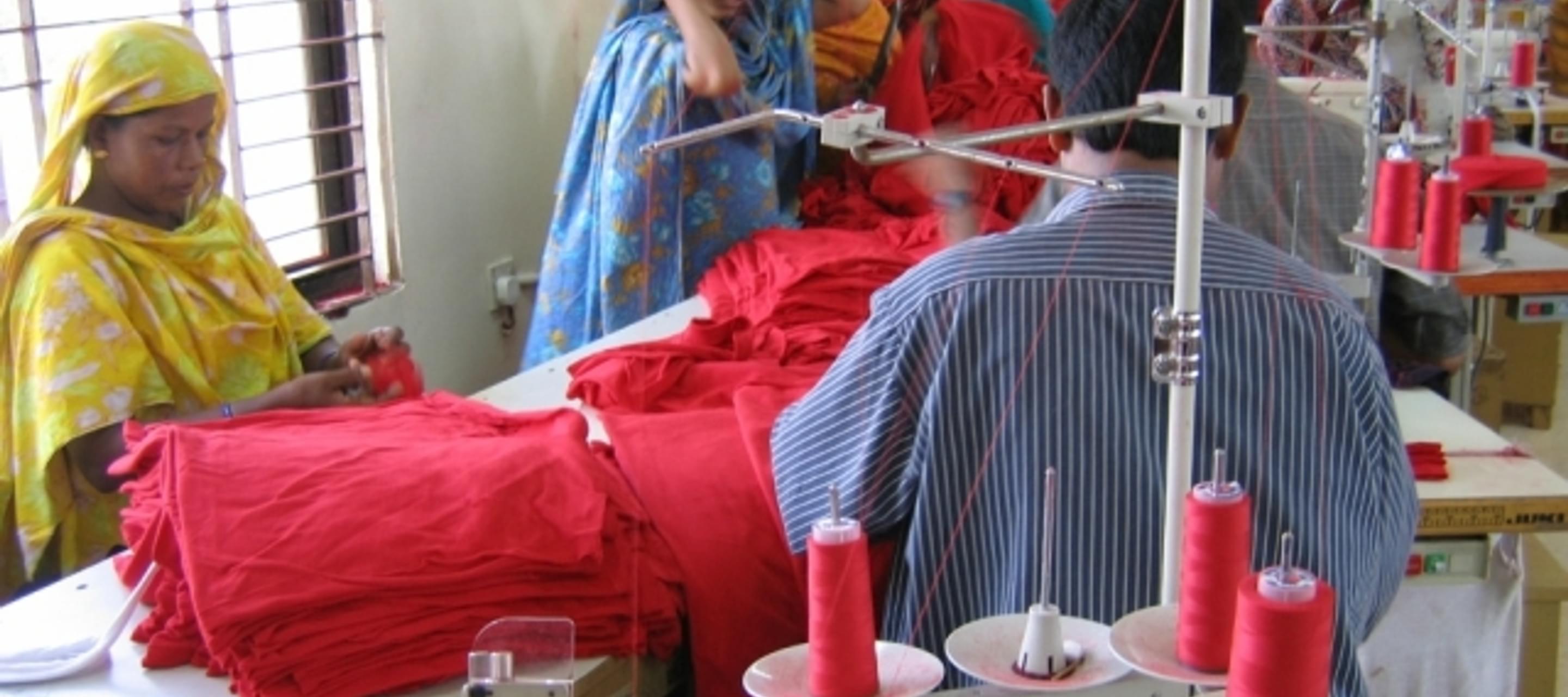A Contentious Connection - Business and Women’s Rights
8 March 2017

The relationship between business and women’s rights activists and advocates has always been contentious, and more frequently, rife with suspicion and hostility, especially in the global South. This is not, unfortunately, without reason.
Not only has business been largely indifferent to gender equality as a larger social or development goal, but is seen as actively benefiting from (and hence interested in perpetuating) the subordinate position of women in most developing societies. As a leading international women’s rights network stated, at the launch of its dialogue on “Challenging corporate power for gender justice”:
63% of the world’s 175 largest economic entities are corporations [only 37% are countries]. Once we let that fact sink in, it becomes evident that any struggle for economic and gender justice is inextricably linked to understanding and contending with the systemic implications underlying unrestrained corporate power.
Why?
Why is business viewed in this way? Why is it seen as unrestrained?
There has been a massive feminisation of the labour force in a growing number of industries and sectors over the past four decades, accompanied by increased 'informalisation'.
While women have always been a significant part of the labour force in agrarian economies, the globalization of economies in the “post-industrial” era has created entirely new phenomena that must be seen through a gendered lens. There has been a massive feminisation of the labour force in a growing number of industries and sectors over the past four decades, accompanied by increased “informalisation.” This has meant erosions in even minimal labour rights and protections for women workers (maternity leave, on-site child care) because they are “too expensive” and therefore render businesses uncompetitive. Women workers are provided limited or no employment security, poor wages and benefits, and equal pay for equal work is an exception not the rule.
Whether small businesses or multinational mega-corporations, women’s rights groups see business actors as exploiting and benefiting from systemic gender inequalities, rather than interested in redressing them. Indeed, many business leaders in the South have been open about their preference for women workers, not out of any concern for women’s economic empowerment, but because they believe them to be more productive, deferential, desperate for income, less political and thus less likely to unionise or strike work, and generally easier to control.
The Problem
Most companies that feminised their workforces – such as in the garment, electronic and food processing industries – paid little or no attention, much less responded to, the increased violence or exploitation women workers faced from unemployed male partners, sexual harassment and “sextortion” at the workplace, or even basic physiological needs like more toilet breaks for menstrual hygiene. Shop floor studies in locations as diverse as Mexico, India, and Taiwan have shown that women workers in sweat shops are not permitted more than two toilet breaks in an 8-hour shift, terminated for the most minor “infringements”, sexually exploited by owners and managers, provided little or no security when working night shifts – the list goes depressingly on.
But such extreme or violent events are not the only cause of the deep mistrust of business: many companies are seen as embracing the mantra of “gender equality as smart economics” only to serve their bottom line, not to empower women.
The assassination of Berta Carceras, the Honduran Woman Indigenous and Environmental Rights Defender, in March 2016 [supposedly by “unknown” assassins, but other environmental activists who were similarly threatened allege they were supported by an internationally financed company and the national government], and over 100 other activists killed in that country for resisting hydroelectric or mining projects that would displace them – was only a recent example of what most women’s rights advocates believe to be the ugly nexus between corporate interests and corrupt political regimes.
In India, a prestigious corporate house allegedly paid for the provincial government to raise six additional police brigades to suppress a popular indigenous struggle against their mining interests, and there have been credible allegations that a key strategy of the suppression has been mass rapes of young women resistors.
But such extreme or violent events are not the only cause of the deep mistrust of business: many companies are seen as embracing the mantra of “gender equality as smart economics” only to serve their bottom line, not to empower women.
The Positive Force of Business
It is unfortunate that this damning record has submerged and more or less made invisible the efforts of the more enlightened sections of the business community to right the historical wrongs not only against women, but other groups and identities stigmatised and excluded by virtue of their race, caste, ethnicity, nationality, gender identity or sexual orientation, ability, and other differences.
The truth is that business can make a huge difference, and at least some in the business sector see that not only as a possibility, but a central responsibility.
It is rarely recognised that:
- some multi-national corporations have not only embraced, but actually forged the highest standards of non-discrimination, especially on the basis of gender, and enforced these with rigour and seriousness;
- that they have encouraged and supported women to break through even the highest “glass ceiling,” protected women employees from domestic violence, and prosecuted sexual harassment in the workplace;
- created initiatives for building the capacities and leadership of women employees, including sponsoring them for advanced professional training, to improve the pipeline and level the playing field for women to reach the highest leadership levels;
- invested serious amounts of money in both corporate philanthropic initiatives targeted at empowering women and girls as well as in mass media campaigns that challenge social norms and attitudes that discriminate against women;
- corporate foundations around the world almost invariably have major chunks of their grant-making focused on gender equality and women’s rights.
The truth is that business can make a huge difference, and at least some in the business sector see that not only as a possibility, but a central responsibility.
From Outright Hostility to Critical Engagement
What, then, is the priority if we want to move this contentious relationship from one of outright hostility towards, at the very least, critical engagement? What would women’s rights advocates say to business leaders, if they were to agree to a constructive dialogue?
First, they would ask for a genuine hearing of the evidence they and their allies in other movements have gathered about how the way companies currently do business is impacting on women and marginalised communities around the world – they would ask business to truly listen and absorb their facts, without facile dismissal.
Second, they may ask for business leaders committed to women’s rights, human rights, and the rights of the planet - it has to be all three agendas, you see, not just one - to become more visible allies and more vocal opponents of corporate practices that violate these rights and profit from these violations.
Third, (if they are still talking to each other at this stage!) they might suggest a longer-term dialogue, in order to build a joint vision and action agenda for a healthy planet populated by nations that embrace not only gender justice, but social and economic justice for all their citizens.
On this International Women’s Day, such a dialogue seems an impossible dream – but also a worthy goal. Who in either of these sectors will have the courage to take a step in this direction?
Srilatha Batliwala, director, Knowledge Building and Feminist Leadership, at Creative Resources for Empowerment in Action (CREA), and Member, International Advisory Board, Institute for Human Rights and Business, has been a researcher, advocate, and activist on gender and human rights. She has written this blog in her personal capacity.
Image: Flickr/jankie




